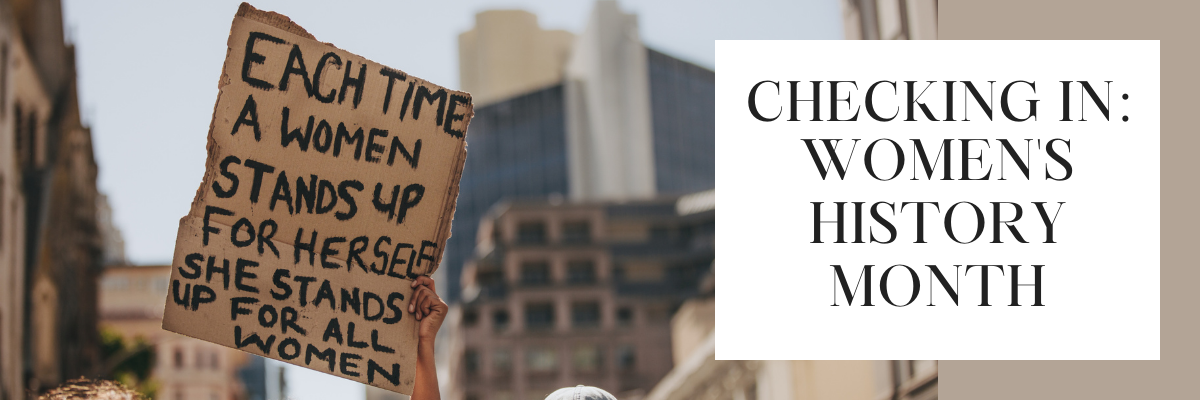Checking In: Women’s History Month

From the beginning of time women have made game-changing contributions to culture and society. In the U.S. we have celebrated Women’s History Month during March since the first presidential proclamation issued in 1980 by President Jimmy Carter. Congress followed suit the next year, passing a resolution establishing a national celebration. Six years later, the National Women’s History Project successfully petitioned Congress to expand the event to the entire month of March.
At Anthem Strong Families (ASF) supporting women and girls is far-reaching. From the commitment of Founder and CEO, Cosette Bowles and having a workforce with 50 percent female representation, to instituting classes and workshops that strengthen families; ASF continues to provide award-winning programs that effect families, many of whom are headed by women.
Women’s History Month is also an opportunity to reflect on the unequal weight women continue to bear in families and communities. The White House proclamation commemorating Women’s History Month brings attention to the crushing effect the pandemic has had on communities of color. “The COVID-19 pandemic has exacerbated barriers that have held back women — particularly women of color — for generations and a disproportionate share of caregiving continues to fall on the shoulders of women. And now, job losses due to COVID-19 have set women’s labor force participation back to its lowest point in more than 30 years — threatening the security and well-being of women and their families…”
The statistics bear an alarming uptick about the effects the pandemic is having on families:
- The share of mothers who have left the labor force is three times that of fathers.
- In September 2020 alone, an astonishing 865,000 women dropped out of the American workforce.
- Women are disproportionately facing higher rates of unemployment.
- Food insecurity has risen dramatically since the pandemic began, particularly in female-headed households with children, as have reports of intimate partner violence.
According to The Texas Women’s Foundation, women in Texas are more likely to live in poverty, face high housing burdens and be responsible for childcare. The foundation reports that even though the population of Texas women has grown by 19 percent in the last 10-years, women will face huge economic and health disparities. While it is always great to celebrate successes, contributions, and achievements, it is also important to remember that we still must roll up our sleeves and get to work to alleviate the barriers that affect women and their children.

